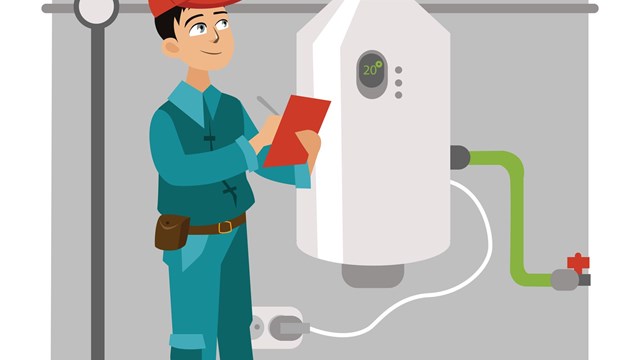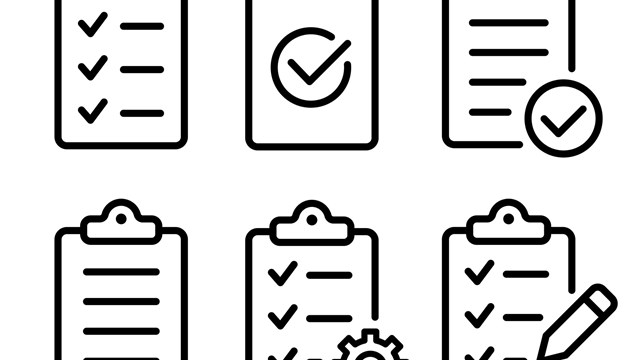
A building or association's budget may very well be the bane of every board member’s existence. This is especially true when it relates to the prioritizing of repairs and maintenance tasks. Given the safety concerns involved, these are among the most important decisions a board makes. Also, while considering the structural integrity of the building, curb appeal, and consistent quality of life for residents, board members have to be strategic when deciding about what to repair and when.
When the board considers a priority list, the members must make sure no unit becomes uninhabitable. While no one can avoid a satellite crashing through the roof, most catastrophes can be avoided with some advance planning and management. In fact, building administrators often look for creative ways to save money, making tough decisions when determining the projects to undertake immediately, versus which ones to address later. Certainly, the process raises questions about liability, long-term planning, and how boards and managers can make decisions in tough times.
The Waiting Game
Certain routine maintenance projects absolutely cannot be skipped, including regularly checking the state of the building’s roof to take note of and address normal wear and tear; also, checking the roof drains, even in winter, when a clog up there could quickly prove disastrous. The building’s boiler requires a regular schedule for check-ups by boiler maintenance professionals, as well as--at least--weekly checks by building staff, who should be monitoring how the device is running and noting it in a logbook.
Naturally, physical issues that present a safety concern require immediate attention. If an issue is more cosmetic however, there is greater latitude in deferring repairs (although poorly maintained aesthetic elements can eventually take a toll on the perceived value of a building). Deferring maintenance on a building’s structural or mechanical elements will inevitably result in higher costs when repairs are eventually made.
While major issues may need some consultation and thought before appropriate action is taken, emergency-related equipment should always be handled immediately and made the top priority no matter what. For example, says Tom Boyd, a retired firefighter and project manager at Morris Engineering in Somerville, “If you know you have deficiencies in fire separation assemblies or firewalls, draft stopping...or any deficiencies as far as any life saving devices such as fire, carbon monoxide extinguishers, those things should never be put off.”
Of Significant Importance
Typically, an association's priorities sway to the tasks that compromise the safety and/or livability of residents' homes. Beyond a roof collapsing (which is unlikely, though it does sometimes happen) the most significant threats to this are devices like the boiler, furnace, and hot water heater. During the winter months in colder cities, no heat can make a building uninhabitable in a matter of hours. That becomes not just a matter of comfort, but of physical safety.
According to Ron Katz, a general manager at Kipcon Great Lakes, an engineering and consulting firm that has offices nationwide and in North Brunswick, top priorities should be expensive and utility-based. “When they have to be replaced…they have to be replaced immediately,” Katz says. If you don't take care of them…they could turn into an emergency replacement…which would end up raising the cost just because it's an emergency.”
For instance, just about every structure or piece of equipment in a building—from roof to boiler—have a useful life. If maintained and inspected regularly, an association shouldn’t incur abrupt surprises. If not maintained, however, a boiler can fail suddenly and force an association to spend extra cash to acquire an immediate replacement.
“Replacement schedules are just as important as the maintenance of the item; of course, if you don't maintain it, it's going to be replaced much sooner,” says Katz. “If it’s a large ticket item, then it will have a greater effect on your reserve balance. If you don't have the reserve funds available, then it's going to require a special assessment…which you want to avoid at all costs.”
Items that require prominent attention include cracks in exterior walls, leaks in the roof, excessive chimney exhaust, elevators operating improperly, and sidewalk flags. These problems must be addressed immediately in order to avoid major problems, repairs, or replacement expenses.
Public safety issues have to be at the top of the list, as well, which involve tasks like maintaining fire alarms, replacing water heaters and dryer vents, evaluating elevators and any trip hazards in the community. If a resident complains about smelling gas, this warrants taking immediate action, either a call to 911 or the local utility company.
On Top of Things
The topic of roof repairs generates different opinions from experts. While some say to wait on repairs, others feel action should be taken as soon as there's even the suggestion of a possible leak.
In New Jersey's climate that hovers near freezing during late fall and winter, constant freeze-thaw cycles can wreak havoc on structures. “The temperatures drop during the evening hours, causing the semi-melted snow to refreeze at the gutters or collector boxes, which causes a dam,” says Brian Allendorfer, president of Chicago-based contracting firm Brian Allendorfer Company, adding that weather causes similar occurrences as in the Northeast. “The expansion of the ice in this critical area (where runoff continues to move toward) can cause damage to the gutters and collector boxes…subsequently causing leakage into the building.”
While roof leaks shouldn’t be ignored entirely, sometimes minimal patching may suffice while further work postponed considering the nature of the problem—though that's a call that should always be made by a professional. The cost of a new roof will increase somewhat over time…but if a board can postpone spending $200,000 on a new roof, it might be worthwhile. “If you're getting leaks in multiple areas of the roofs, obviously that's too much patching,” Katz says. “Also, certain towns and cities have ordinances where they limit the amount of roof coverings you can have. If you have layered it over a second time, then some places aren't going to let you do a third time.”
As important as it is to keep up on the health of a roof, particularly in the winter, the danger of doing so can sometimes outweigh the benefits. If a building has a slanted roof covered in ice, then no one's going up there to make any assessments. One must wait and hope for the best.
It sounds simple, but one of the best road maps to keeping the building in good shape is your reserve study—the rundown of all its key structural and physical plant components, and where they stand in terms of their anticipated useful life, carried out by a licensed engineer.
“Don't just let your reserve study go for 10 years and do nothing,” says Boyd. “Maintain that, update it every three years, make sure that you're following it. Like for certain condo associations, we're working with one association right now as far as water heater replacement. How do we stop the water heater on the third floor from leaking and bursting, going down into the second and first, causing catastrophic damage to those two units as well?”
Legal Issues
Legal and liability issues are different for boards than they are for management companies, as boards can be sued for breach of fiduciary duty, negligence, and failing to adhere to the mandates of the condo documents.
Boards are not paid, and shouldn't be held liable for building complications that weren't made evident to them by an engineer or property manager. If boards become aware of a problem with the building however, they need to acknowledge it and act on it with the help of their attorneys and managers. As long as problems are addressed appropriately and in a timely manner, a board has upheld its fiduciary duty, and will not likely be held liable.
One common issue for boards can be mold issues related to water infiltration, since mold does not get covered by insurance policies nearly as often. If mold is detected in a unit, it can also be a serious health hazard for residents. Just because it's not a hole or giant crack in the foundation doesn't mean mold should be taken any less seriously than something more glaringly obvious. But regardless of the visibility of the issue, the pros agree it's best to always make sure you're proceeding diligently on building issues with an attorney.
Getting Help
Every board should be able to rely on its management company to direct the satisfaction of the building’s maintenance needs and schedule. It’s always good to have a maintenance plan and strategy in place, but sometimes a major storm comes along and serves to aggravate existing repair and maintenance issues and reveal latent or other defective conditions that perhaps did not seem critical but now must be addressed.
Any sizable condominium should have a long-term capital improvement schedule developed with a building engineer so that it can be at the ready with both funds and bids. Remember, putting things off doesn’t solve the problem. Inflation waits for no man, and prices on anything will always go up as time goes by.
Keith Loria is a freelance writer and a frequent contributor to The New Jersey Cooperator. Staff writer Tom Lisi contributed to this article.






Leave a Comment